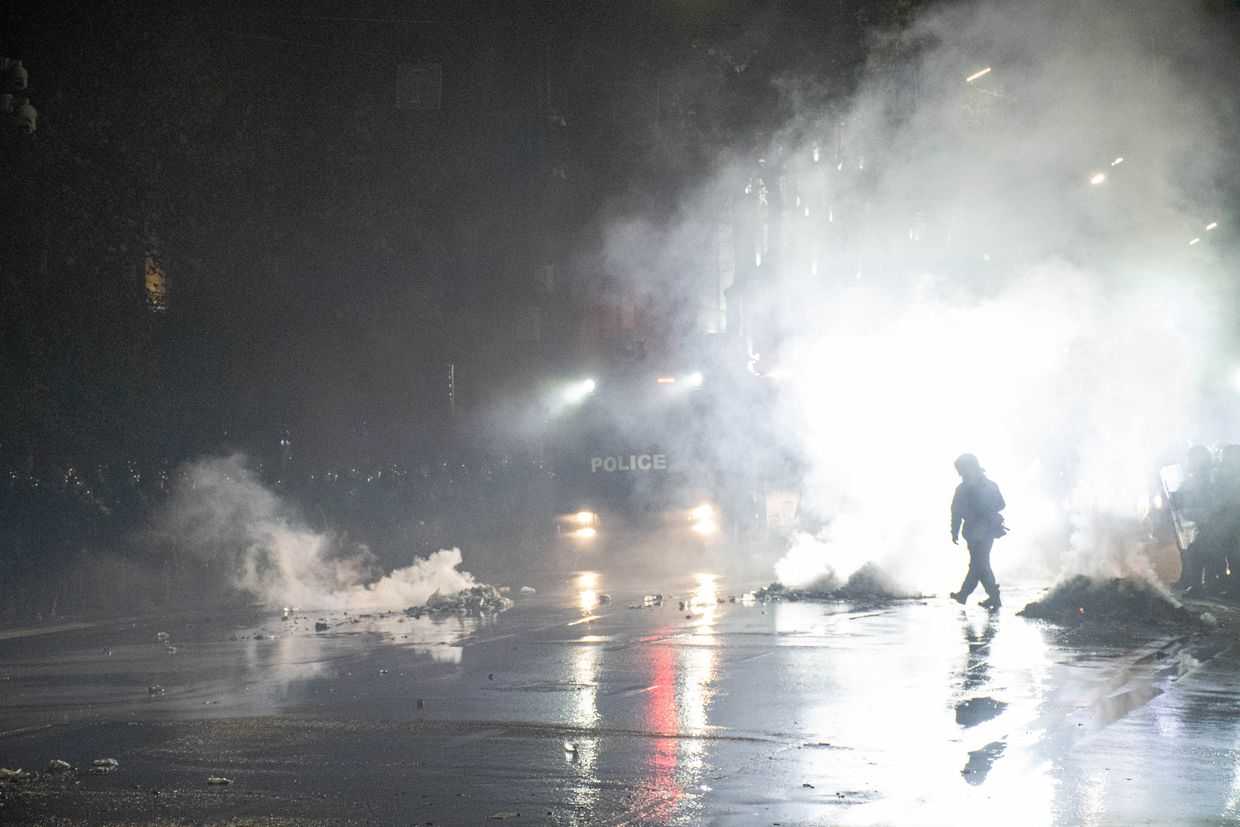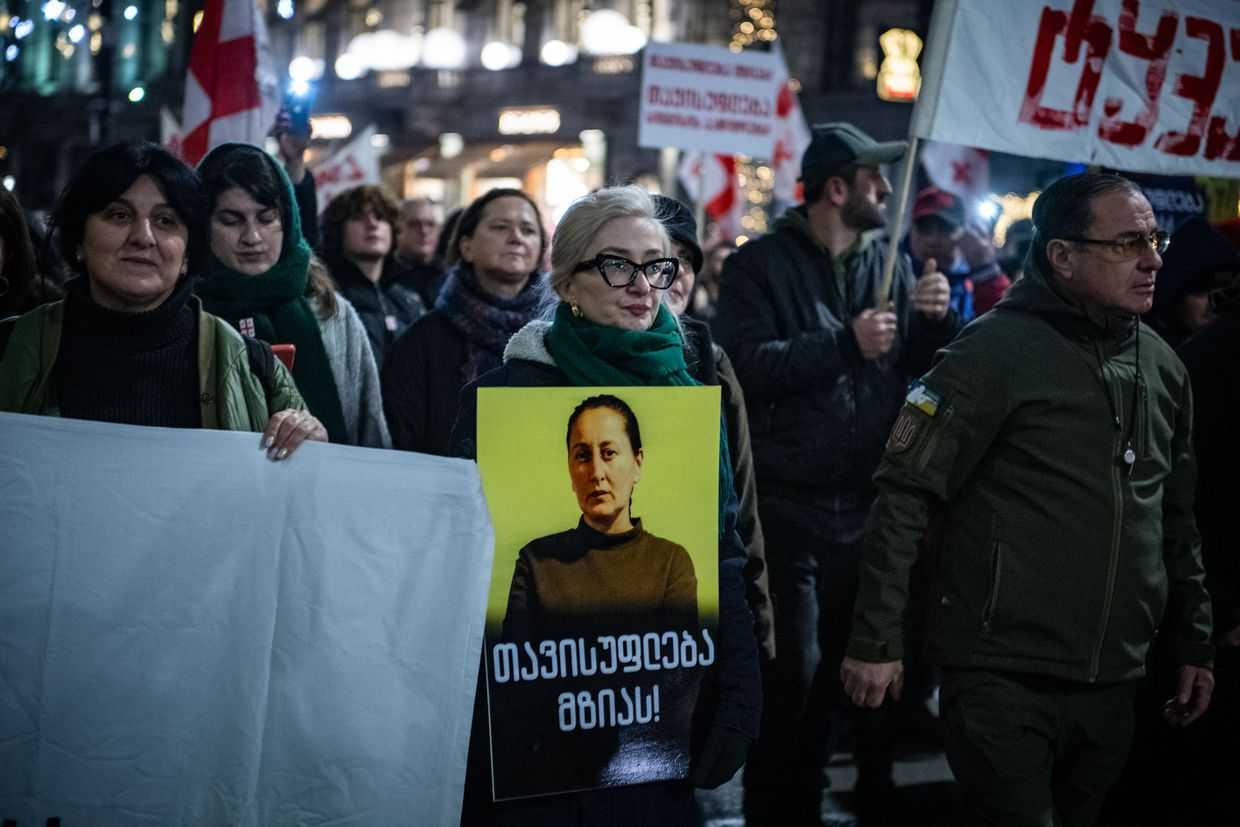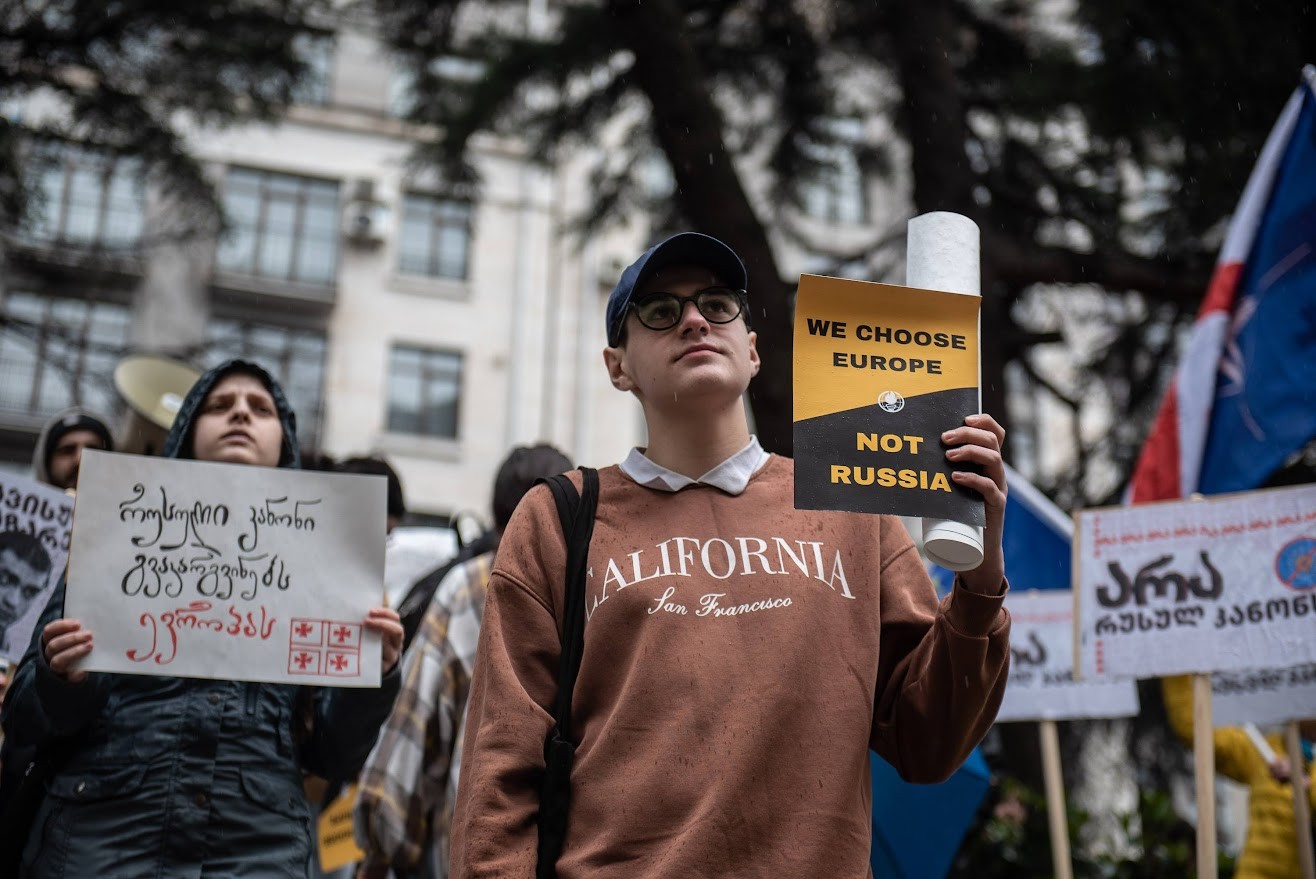
Georgia’s draft foreign agent law has passed its first stage, with Parliament’s Bureau giving the legislation the go-ahead to proceed amidst noisy protests outside the building.
Hundreds gathered around the rear and sides of parliament on Monday in scenes resembling the early days of the protests that broke out when the bill was previously proposed in March 2023.
Following two nights of massive protests on 7–8 March 2023, the government was forced to drop the legislation, promising not to return it. On 3 April, the party announced they were bringing the bill back.
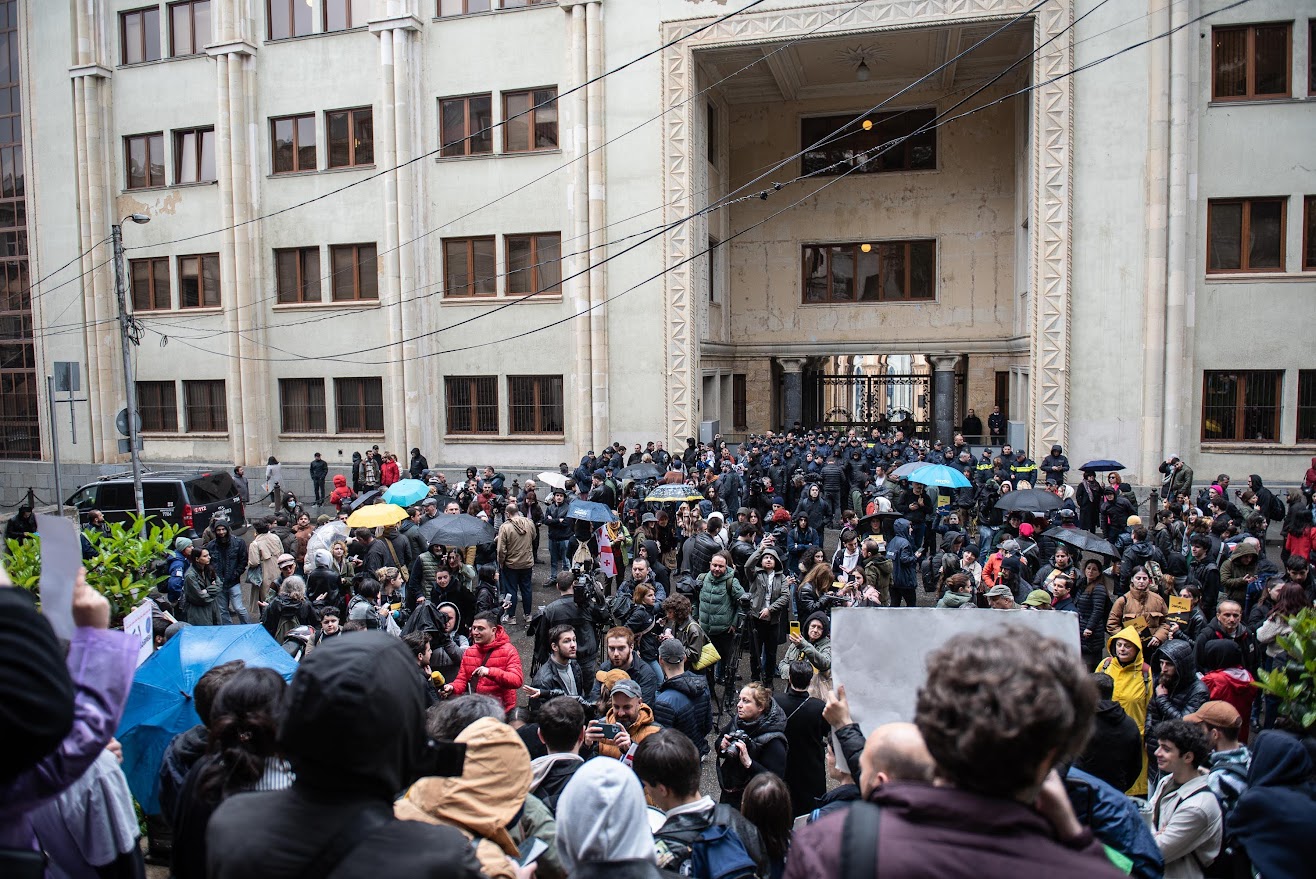
The bill’s next step will be committee hearings, with the Legal Affairs Committee due to discuss it on 15 April.
Monday’s Bureau session saw heated confrontations between government and opposition MPs. Opposition Lelo party MP Ana Natsvlishvili said that the Bureau registering the draft law was a betrayal of the Constitution and Georgia’s ‘European future’.
A number of journalists were refused entry to parliament as the Bureau was considering the legislation, including from OC Media.
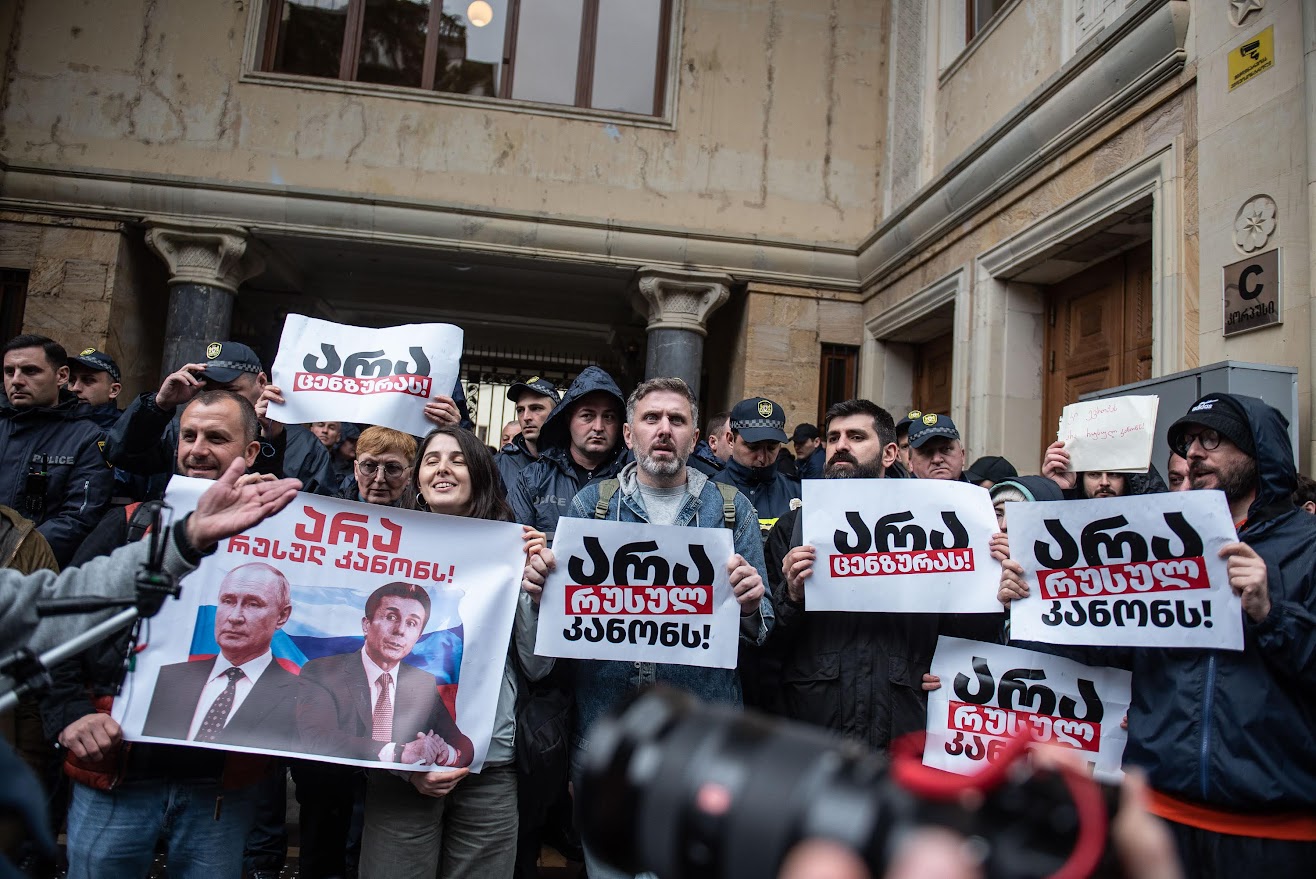
The legislation has faced a barrage of criticism both domestic and international.
On Monday, more than 400 Georgian civil society groups issued a joint statement warning that the bill was ‘a Russian authoritarian tool to suppress freedom of speech’ and that its adoption would preclude the country from opening membership negotiations with the EU at the end of the year.
The legislation has been widely referred to in Georgia as the ‘Russian Law’, due to its similarity to legislation used to crush dissent in Russia.
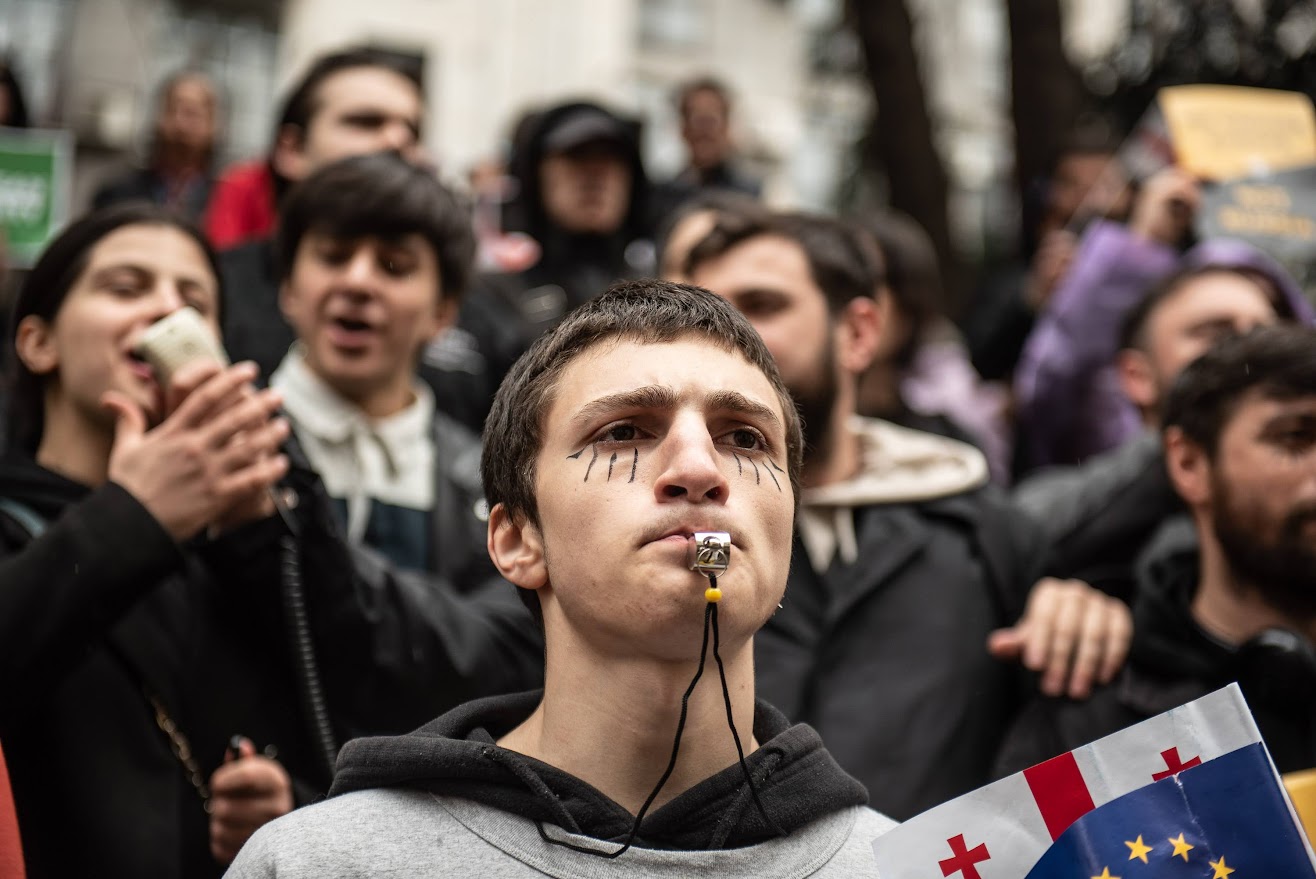
Members of Georgian Dream have stated that the bill will be adopted before the end of the spring session of parliament, on 28 June.
Giorgi Mskhiladze, an adviser to President Salome Zurabishvili, was also present at the Bureau session. He said that if the law was passed, President Zurabishvili would veto it. Parliament has the ability to overrule a presidential veto.
The legislation would label any civil society or media organisation that received at least 20% of its funding from outside Georgia ‘organisations carrying out the interests of a foreign power’. Such organisations would be subject to ‘monitoring’ by the Ministry of Justice every six months, which lawyers have warned could include forcing them to hand over internal communications and confidential sources. Organisations that do not comply would be subject to large fines.





